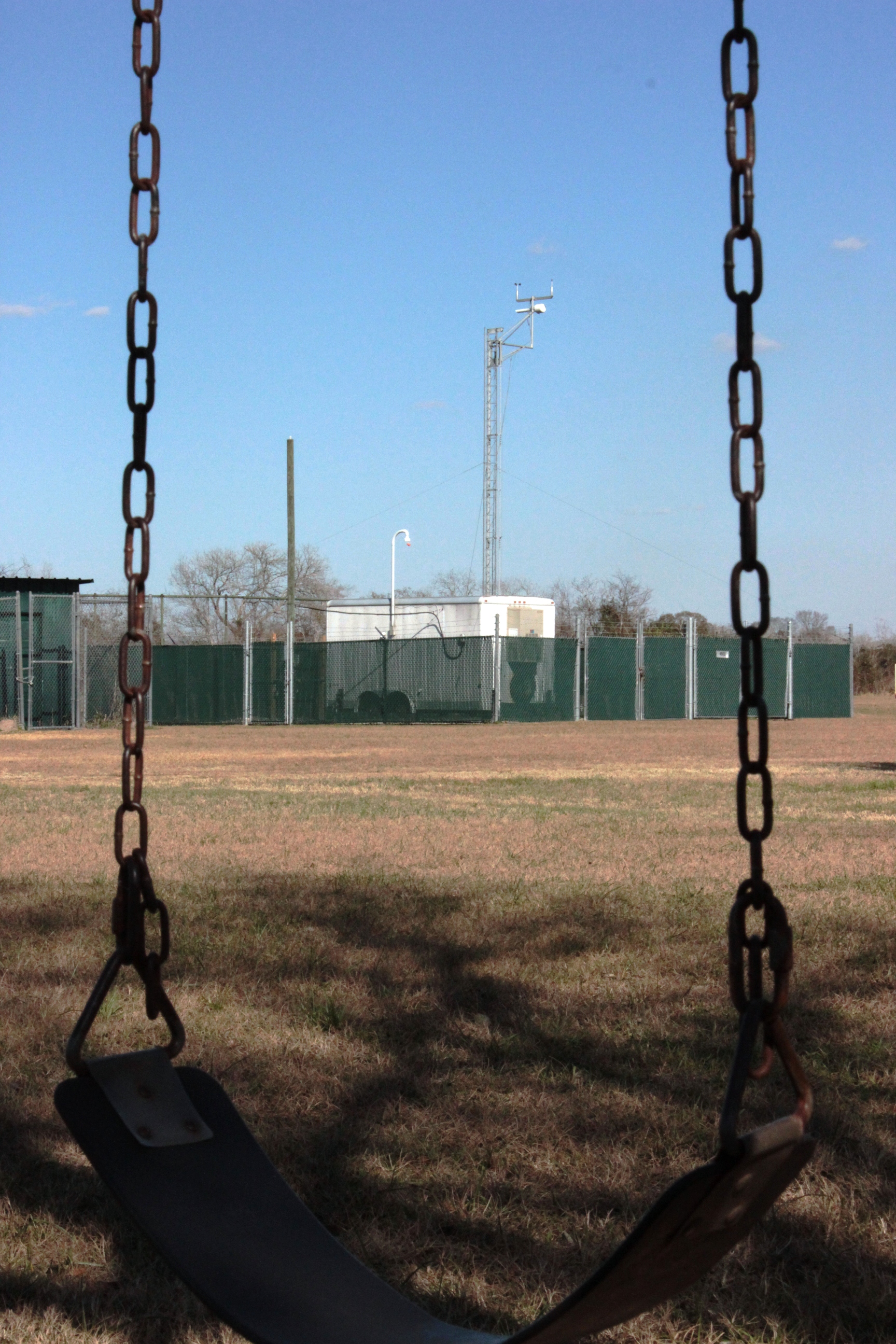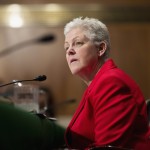Houston’s Ozone Mystery: Pockets of Pollution Unlike Other Cities

Dave Fehling / StateImpact
Air pollution monitoring station at Croix Memorial Park in Manvel
At the Texas Commission on Environmental Quality (TCEQ), they’re very familiar with a park in Manvel, a small town 15 miles south of downtown Houston. It’s a place where prairie land is quickly being turned into subdivisions but it still retains a rural appearance.
In Croix Memorial Park, between a soccer field and a playground, is one of the TCEQ’s air pollution monitoring stations, one of over 20 spread across the Houston area.
For some reason, the monitor in Manvel shows that ozone levels here are among the worst in the metro area. Consistently. And they haven’t come down as they have over the past decade at other monitoring sites, some of them near areas with far more sources of pollution from vehicles or industries.
“So the question is why, what’s different about that site,” said David Brymer, director of air quality at the TCEQ. “It’s south of town. Houston’s not really known for consistent north winds that would blow the urban core emissions towards that monitor. “
Brymer told StateImpact one explanation could be the weather: heat, humidity, wind. All could be factors. But the more that scientists study ozone, the more it seems they find there are no easy explanations.
Houston Does Ozone Differently
They’re learning that Houston stands out as unique in the United States when it comes to ozone. The metropolis is one of the most ozone-monitored regions in the country and does not meet federal clean air standards.
“There’s been so much focus on Houston for more than a decade,” said Anne Thompson, a research scientist with NASA’s Good Space Flight Center in Maryland.
“Houston is unique. Why it gets studied is you have a very concentrated petrochemical industry and of course, you have your tropical meteorology that kind of mixes up the hot, sunny conditions. So that’s unique,” said Thompson.
Thompson is working on NASA’s DISCOVER-AQ Mission. It’s goal is to find a way to use satellites to track air pollution. In Houston, satellite images might unravel the ozone mystery by tracing its sources.
“We find the ozone pollution in Houston is quite variable. So depending on what side of town versus the other, you can have very polluted conditions on one side of town and be perfectly clean on the other side of town,” said Jim Crawford, NASA’s principal investigator for the DISCOVER-AQ Mission.
“Whereas on the East Coast and in California, you’ll often find a metropolitan area’s ozone goes up and down in concert. So you’ll have the whole area be polluted or the whole area be very clean but rarely have pockets of pollution like you find in Houston.”
Are the Pollution Monitors Broken?
Scientists working on NASA’s satellite project met last week at Rice University to update each other on data gathered for air pollution research. Among the presentations, one raised the role played by “background ozone” which is naturally occurring or originates elsewhere from Mexico or other countries but drifts into Houston. Knowing the background level is important because it’s considered by the EPA when setting clean air targets for cities.
Another presentation by an engineer with the American Petroleum Institute, Cathe Kalisz, raised the possibility that the existing method for measuring ozone —- all those air monitors like in the park in Manvel — might be inaccurate. Kalisz said improved monitors are being tested in Houston.
Could that be an explanation for the consistently high ozone readings in Manvel: a faulty monitoring station?
“Anything’s possible,” said the TCEQ’s Brymer. But he told StateImpact that the Comssion has “really stringent quality assurance” for its monitoring equipment and what’s at Manvel is no different than those used at other sites.

